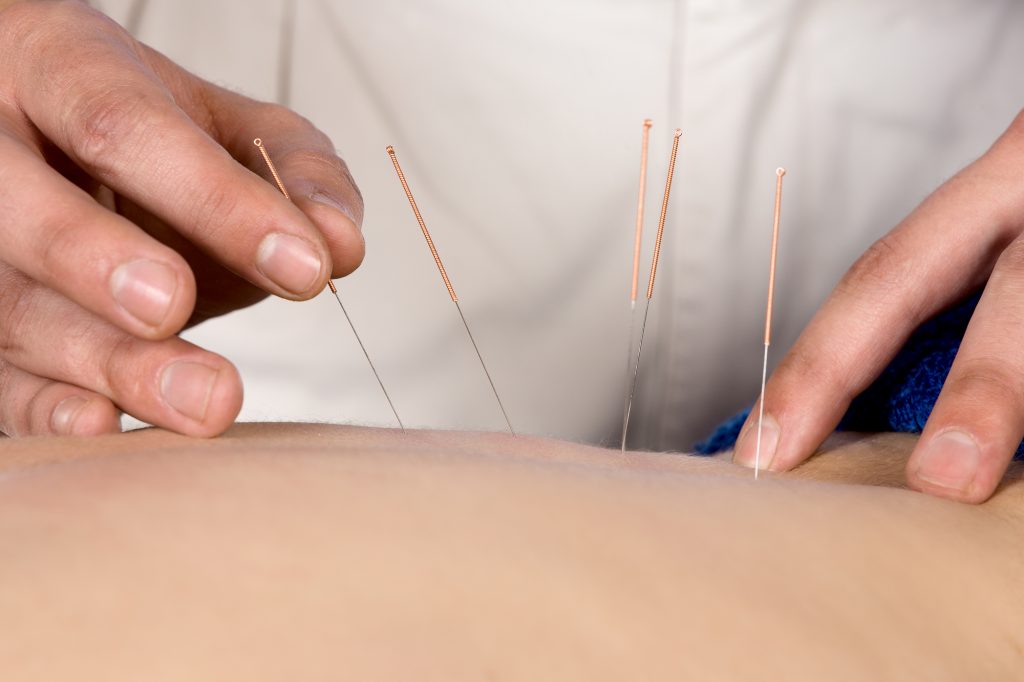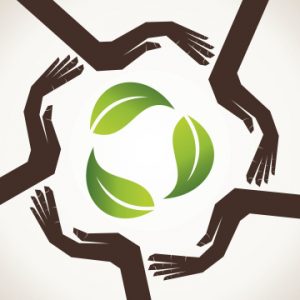Holistic and Integrative Practices in Healthcare have always existed side by side with Western medicine but not till the 20th Century did these other methods start to make an impact and entry into Western society. Many of these methods when utilized under the care of a healthcare professional can be very beneficial and can sometimes work in unison with Western medication. Various therapies that were once not mainstream such as chiro, massage therapy, hypnosis and acupuncture have no taken important roles in health and wellness within Western society.
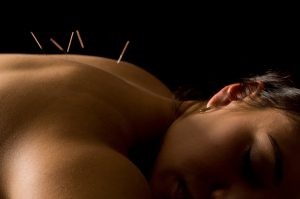
Acupuncture is one such therapy that can help one with a list of maladies and issues from physical pain to mental stress. Utilizing a concept on various points of the body, the healthcare professional looks to alleviate pressure at certain points to manipulate negative energy. Of course, the concept is tied to deep spiritual concepts found in Eastern religions, but the concepts also from a physiological standpoint also bear merit in how the body reacts to acupuncture.
The article, “Acupuncture Explained: What is It & How Can It Help You” by Sophie Steiner and Dr. Evan Pinto looks closer at acupuncture. Within the article, they detail what acupuncture it is, its history and what is used to treat. While it may not be for everyone, the authors of the article are confident in its abilities to treat a broad range of maladies with many benefits. The authors state,
“Acupuncture, a form of alternative medicine and core component of TCM, is a welcome antidote to the prescription meds and quick-fix interventions typical of Western biomedical culture. By strategically inserting hair-thin, stainless steel needles into specific pressure points, acupuncture helps relieve the symptoms of a wide variety of conditions by shifting the body from attack mode to a more balanced, restful state. Acupuncture helps balance out one’s Qi, or energy center, leading to a calmer, healthier person.”
“Acupuncture Explained: What is It & How Can It Help You”. Sophie Steiner and Dr. Evan Pinto. March 17th, 2023. Thats
To review the entire article, please click here
Commentary

Acupuncture is a form of alternative medicine that involves the insertion of thin needles into specific points on the body. These needles are typically made of stainless steel and are about as thick as a human hair. Acupuncture is based on the belief that the body has energy pathways, or meridians, that can become blocked or disrupted, leading to illness or pain. By inserting needles into these specific points, acupuncturists aim to unblock the energy flow and restore balance to the body.
The History of Acupuncture
Acupuncture has been practiced in China for thousands of years and is believed to have originated in the Neolithic era. The earliest written records of acupuncture date back to the Han dynasty (206 BCE-220 CE), and the practice has been continuously used and refined ever since. In the 1970s, acupuncture gained popularity in the West, as practitioners sought out new approaches to healthcare that were less reliant on drugs and surgery.
How Acupuncture Works
The exact mechanism by which acupuncture works is not fully understood, but there are several theories. One theory is that acupuncture stimulates the release of endorphins, the body’s natural painkillers. Another theory is that acupuncture triggers the release of neurotransmitters, which can help to regulate the body’s nervous system. There is also evidence to suggest that acupuncture can help to reduce inflammation and improve blood flow to certain areas of the body.
The Benefits of Acupuncture
Acupuncture has been shown to be effective in treating a wide range of health conditions, including chronic pain, anxiety, depression, and infertility. One of the main benefits of acupuncture is that it is a natural and non-invasive form of treatment, which can be used to complement or replace traditional medical approaches. Unlike drugs or surgery, acupuncture has few side effects and is generally very safe when performed by a qualified practitioner.
Acupuncture and Holistic Medicine
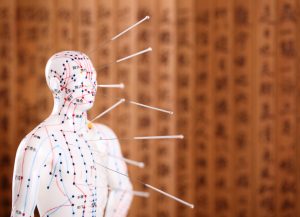
Acupuncture is an integral part of holistic medicine, which focuses on treating the whole person rather than just the symptoms of a specific condition. Holistic practitioners believe that the mind, body, and spirit are interconnected, and that any imbalance in one area can lead to health problems in another. Acupuncture can be used as part of a comprehensive treatment plan that includes other holistic approaches, such as nutrition, exercise, and meditation.
Acupuncture and Integrative Medicine
Integrative medicine is a broader approach that combines traditional medical treatments with complementary therapies, such as acupuncture. Integrative medicine practitioners believe that a patient’s overall health can be improved by addressing all aspects of their health, including their physical, emotional, and spiritual wellbeing. Acupuncture is often used as part of an integrative approach to treat a variety of conditions, from chronic pain to cancer-related symptoms.
Acupuncture and Pain Management
Acupuncture is perhaps best known for its ability to relieve pain. Studies have shown that acupuncture can be an effective treatment for a variety of pain conditions, including back pain, neck pain, and headaches. Acupuncture works by stimulating the body’s natural painkillers, such as endorphins, and by reducing inflammation in the affected area. For patients seeking a natural alternative to drugs or surgery, acupuncture can be an effective and safe option.
Acupuncture and Mental Health
Acupuncture can also be an effective treatment for mental health conditions, such as anxiety and depression. Studies have shown that acupuncture can help to regulate the body’s nervous system, which can lead to a reduction in symptoms of anxiety and depression. Acupuncture can also be used to treat insomnia, which is often a symptom of mental health problems. For patients seeking a natural and non-invasive approach to mental health treatment, acupuncture can be a valuable option.
Acupuncture and Fertility
Acupuncture is becoming an increasingly popular treatment for infertility. Studies have shown that acupuncture can help to regulate the menstrual cycle and improve blood flow to the uterus, which can increase the chances of conception. Acupuncture can also be used to reduce stress and anxiety, which can be a barrier to conception. For couples struggling with infertility, acupuncture can be a safe and effective complement to traditional fertility treatments.
What to Expect During an Acupuncture Treatment
During an acupuncture treatment, the practitioner will insert thin needles into specific points on the body. The needles are typically left in place for 20-30 minutes, during which time the patient may feel a slight tingling or numbness. The practitioner may also use other techniques, such as cupping or moxibustion, to enhance the effects of the treatment. Patients should wear loose, comfortable clothing and should avoid eating a large meal before the treatment.
Finding an Acupuncture Practitioner
When seeking out an acupuncture practitioner, it is important to choose someone who is qualified and experienced. In many states, acupuncturists are required to be licensed, so be sure to check their credentials before making an appointment. It is also a good idea to ask for referrals from friends or family members who have had acupuncture treatments. Many health insurance plans now cover acupuncture, so be sure to check with your insurer to see if your treatment will be covered. Many Holistic and Integrative Specialists can also help one find someone trained and qualified to perform acupuncture.
Frequently Asked Questions About Acupuncture
- Is acupuncture painful?
- Is acupuncture safe?
- How many acupuncture treatments will I need?
- What conditions can acupuncture treat?
- How long do the effects of acupuncture last?
Conclusion
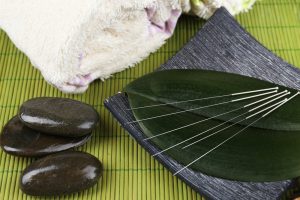
Acupuncture is a safe and effective form of alternative medicine that can be used to treat a variety of health conditions. Whether you are seeking relief from chronic pain, mental health issues, or infertility, acupuncture can be a valuable part of a holistic or integrative treatment plan. By working with a qualified practitioner, you can experience the many benefits of acupuncture and take control of your health naturally. Contact your healthcare professional or a holistic and integrative specialist to find a qualified practitioner in acupuncture.
AIHCP offers a Holistic and Integrative Healthcare Specialist Program for qualified healthcare professionals, especially in nursing, who look to utilize both Eastern and Western medicine in helping patients. It is important to have a qualified and trained professional in guidance of many of the alternative therapies. Holistic Nurses and other Holistic and Integrative professionals can safely guide individuals in utilizing these types of alternative therapies. Please review AIHCP’s Holistic and Integrative Healthcare Specialist Certification and see if it matches your academic and professional goals. The program is online and independent study and open to qualified professionals seeking a four year certification.
Additional Resources
“The Benefits and Side Effects of Acupuncture”. Cathy Wong. June 29th, 2022. VeryWellHealth. Access here
Acupuncture. Mayo Clinic Staff. Mayo Clinic. Access here
Acupuncture. October 14th, 2020. Cleveland Clinic. Access here
“Is Acupuncture the Miracle Remedy for Everything?”. Danielle Sinay. September 18th, 2018. Healthline. Access here

